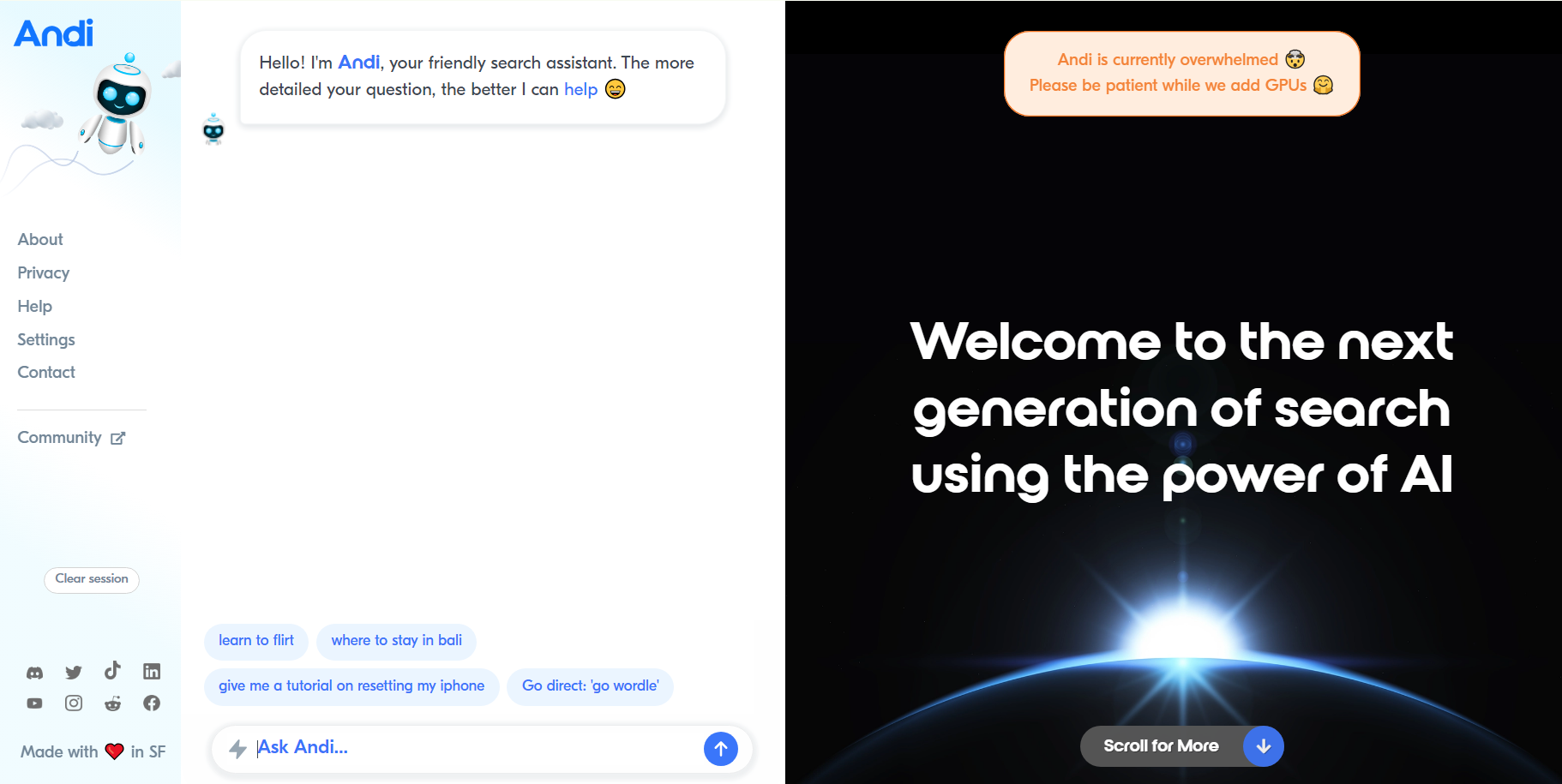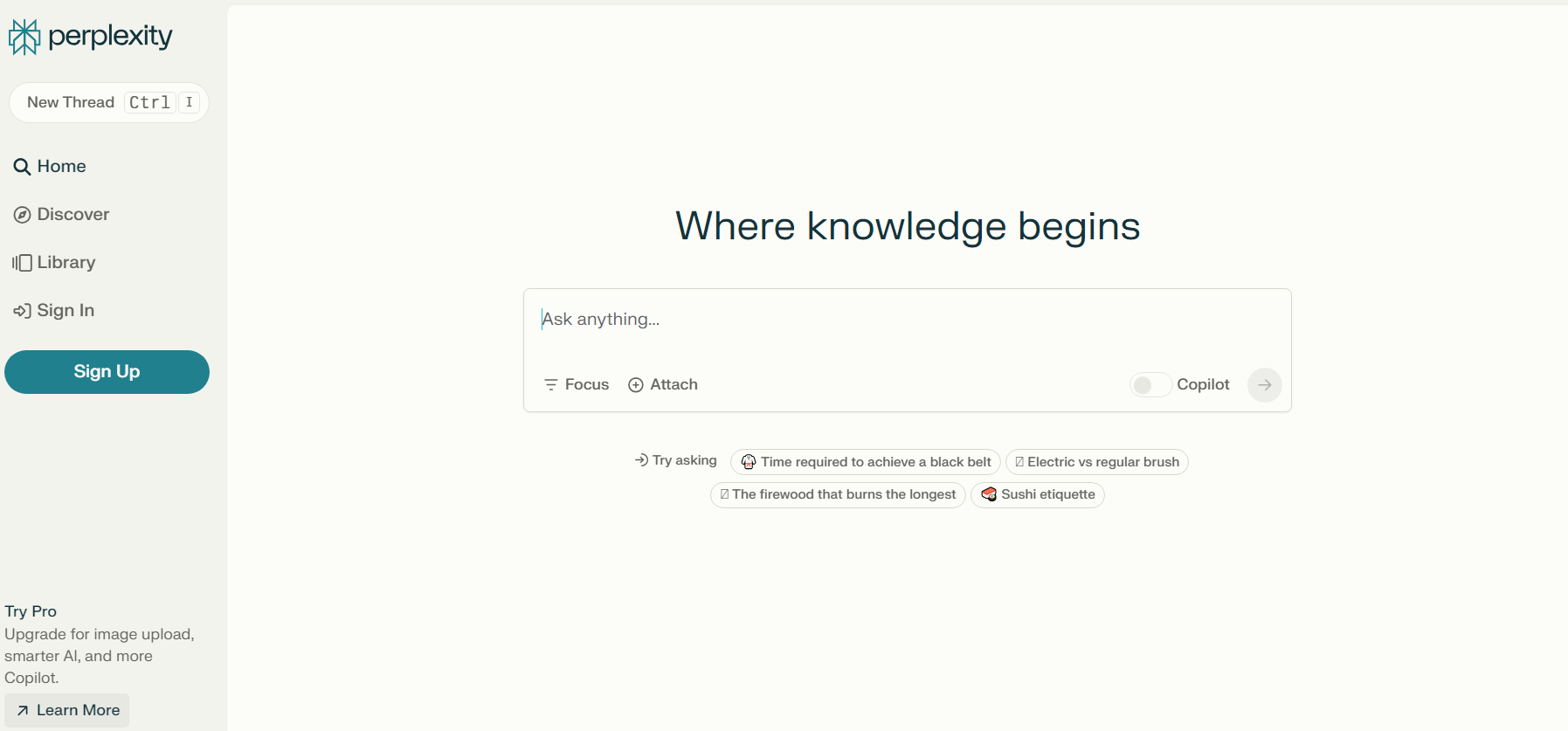In today’s information-rich world, finding accurate and useful search results has become extremely important. It can, however, sometimes feel like searching for a needle in a haystack. But thanks to artificial intelligence (AI), users no longer have to waste time searching through irrelevant links. AI search engines can now comprehend context, intent, and subtle details to provide exactly what users are looking for.
In this article, we’ll look at the top seven AI search engines that are changing the way we navigate the digital world. These advanced algorithms cater to your preferences and ensure privacy while providing various features to enhance your search for information. Whether you’re a casual user or a dedicated researcher, these intelligent tools are ready to transform your search experience.
What Is An AI Search Engine?
In essence, an AI search engine is a website search feature that utilizes artificial intelligence (AI) technologies to improve the search experience and provide users with more accurate and relevant results. By using advanced algorithms, natural language processing (NLP), machine learning, and other AI techniques, it can understand user queries, interpret context, and generate intelligent search outcomes.
Here are some benefits of AI search engines:
- Enhanced user experience
- Natural Language Understanding
- Advanced Search Features
- Semantic Search
- Increased Efficiency
8 AI Search Engines You ShouldTry Right Now
Search AI
AI-Pro’s goal is to equip users with the necessary tools, resources, and knowledge to thrive in the field of AI. Hence, we’ve designed SearchAI so you can explore the web with precision and efficiency, maximizing their time and productivity.
At its core, SearchAI brings together the newest developments in artificial intelligence to provide a seamless and efficient way to explore the web. Whether you need answers to complex questions or personalized recommendations based on your interests, SearchAI offers precise and relevant results right at your fingertips. Try its efficiency now!
Komo
Komo.ai is an innovative AI search platform prioritizing speed, privacy, and ad-free browsing. Utilizing natural language understanding and machine learning, Komo tailors search results based on user preferences, behavior, and context. It has three key features that make it a user-centric solution: Chat, Explore, and Search. Chat enables users to explore ideas and engage in discussions on various topics, whereas Explore ensures users stay updated on the latest trends within the community. The Search function stands out for its prompt and efficient responses to queries, providing relevant links and resources.
Notably, Komo is free, simple to use, and generates personalized results without ads, setting it apart in the search engine landscape.
Andi AI Search

Andi is an advanced AI search engine that combines the features of a chatbot and a search engine. It uses AI technology to provide comprehensive search results. In addition to answering user questions, Andi also searches the web and presents a consolidated result with its own explanatory content. Despite being free to use, Andi aims to improve search outcomes and enhance user productivity.
Unlike Bing and Google SGE, Andi’s interface incorporates AI in all search results, not just at the top of the page. It also presents images, summaries, and options in a contextually meaningful way. Plus, all on-page elements collaborate effectively to provide users with their desired information. However, it’s important to note that Andi may face occasional challenges in understanding whether the user is asking a question or seeking a traditional search result.
YOU AI Search Engine
You.com is a leading AI search engine that delivers personalized answers and experiences to users. Integrating natural language processing (NLP), deep learning, and knowledge graph technologies, You.com can understand user queries and provide precise results. In essence, You.com strives to surpass conventional keyword-based searches by understanding the true intent behind queries and offering contextual information.
Emphasizing a privacy-first approach, You not only assists in searches but claims to improve its performance with each user interaction. A distinctive feature of this AI search engine is its ability to respond to the latest news and recent events, keeping users well-informed and engaged. By combining a large language model with up-to-date citations to websites, You.com positions itself as a comprehensive AI search engine.
Perplexity.ai

Perplexity.ai is an advanced answer engine founded by experts connected to DeepMind and OpenAI and supported by Silicon Valley investors. It uses avant-garde AI, specifically OpenAI’s GPT-3 model, to provide direct answers. However, instead of the traditional list of links, it offers summaries and citations as search results. This means that when users ask questions, the search engine not only provides relevant information but also presents concise summaries and references to relevant sources.
Moreover, Perplexity.ai offers an uninterrupted and straightforward browsing experience for users. It is add-free and does not require users to sign up or log in. More importantly, this AI search engine does not collect any personal information from its users, ensuring a secure and confidential search experience.
Bing AI
Developed by Microsoft, Bing is an advanced AI-powered search engine that uses a next-generation OpenAI language model. This model is specifically designed for searching and even surpasses ChatGPT in terms of capabilities.
Impressively, Bing’s unique chat feature requests additional details and clarity, promoting an intuitive interaction. This lets the users refine their search until they get the information they are looking for.
The AI-powered virtual copilot chat in the search engine enhances the user experience by refining search results and providing comprehensive answers. While Bing is free for everyone, signing in to a Microsoft account is necessary for users who want more than four query results per day. Bing’s AI technology constantly improves, making it a more efficient and evolving search platform than older search engines.
Waldo
Waldo draws inspiration from the famous “Where’s Waldo” game and utilizes search indexes from search engines such as Google and Bing. However, it stands out by offering a unique interface that enables users to customize their searches easily. It also aims to give quicker answers and offers many features, such as publishing and exporting Google Docs. It even allows you to compile research into a document that you can share with others.
Freelancers, teams, and enterprise users can all benefit from its design. However, as it is a paid tool, you can only access it for free during the limited free trial period.
Yep
A revenue-sharing search engine, Yep utilizes AI technologies to provide improved search outcomes. It focuses on visual search, employing AI to comprehend and examine images, and delivers search results based on complicated user queries.
Ahrefs, a well-known SEO tools provider, created it. Instead of overwhelming you with extra features like standard Google search results, they opted for a simpler approach. The creators receive 90% of the advertising revenue, while you can enjoy using Yep for free.
Refine Your Online Search Experience With The Best AI Search Engines
We’ve uncovered a diverse array of AI search engines that promise to revolutionize your online search experience. From enhancing accuracy to providing personalized results, each of these tools offers unique features tailored to meet your needs.
Now, it’s your turn to explore them and determine which one best suit your needs. Whether you’re after personalized results or just want to ask questions, these tools have got you covered!




